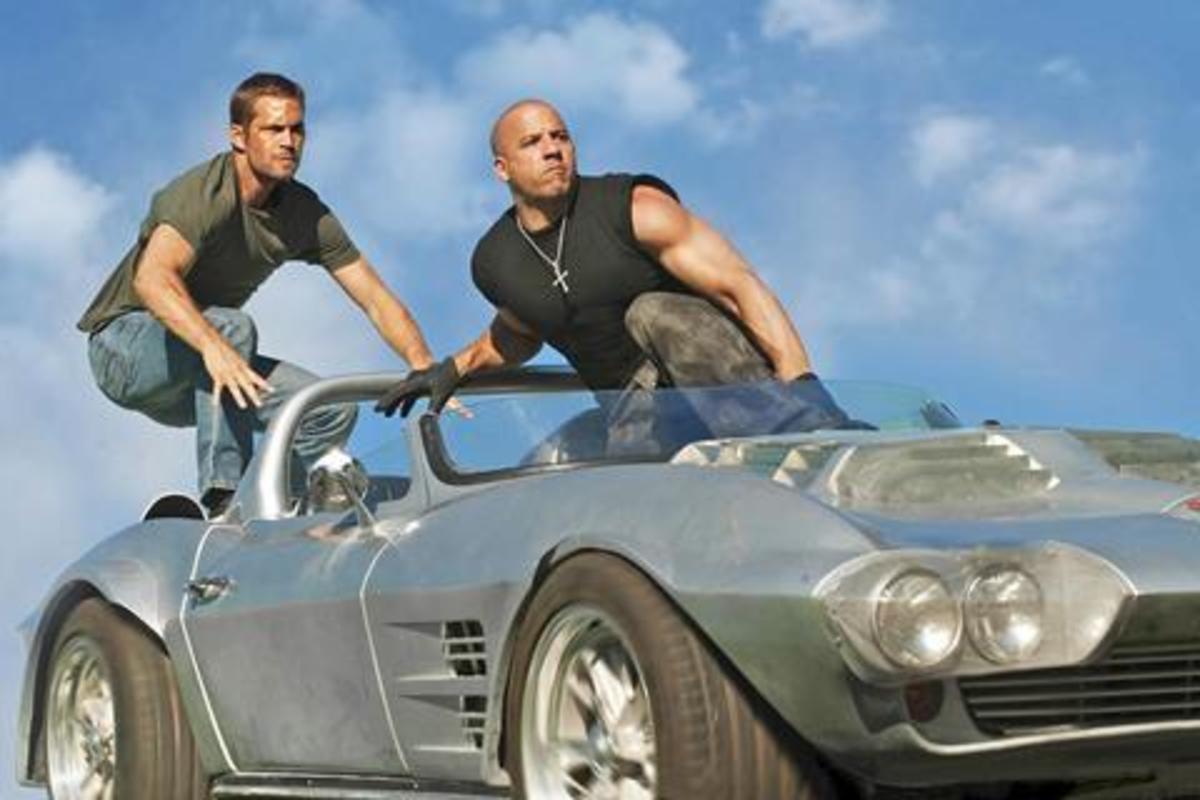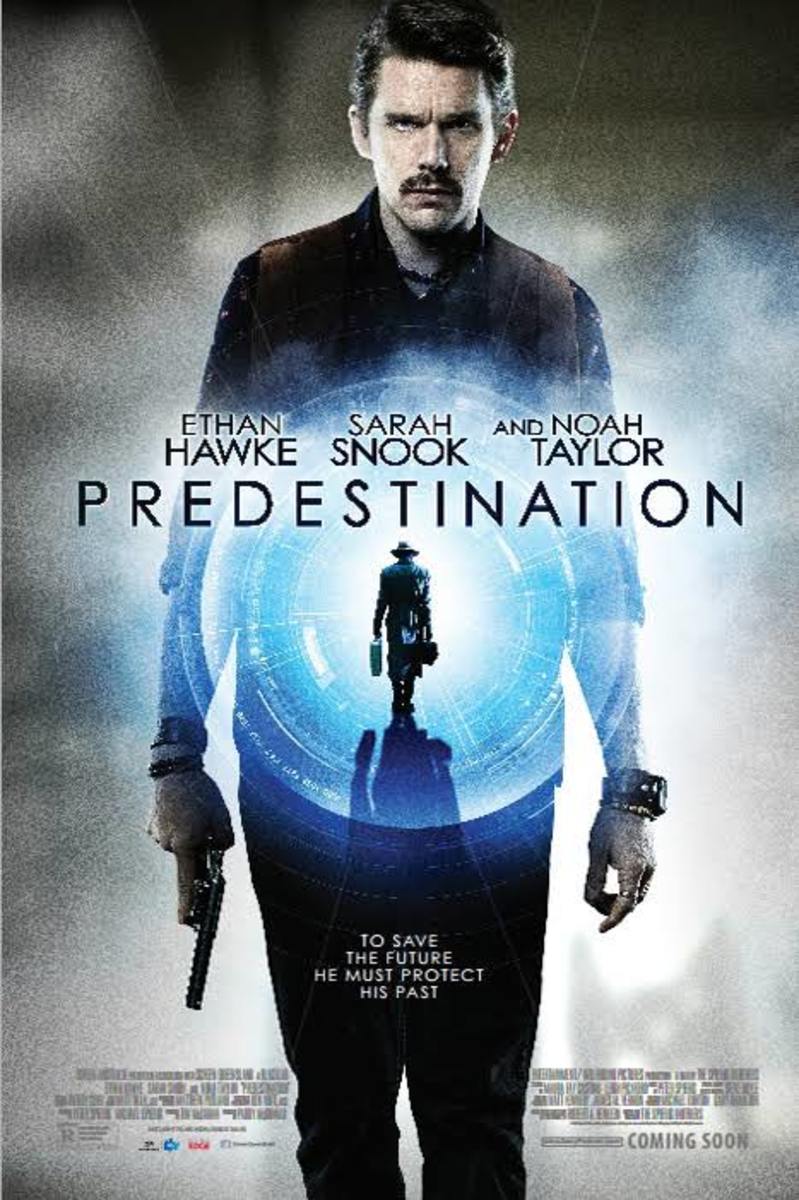Films and Cinema: The Return of the Son of Hollywood: The Sequel pt. IV
If you liked the first four films, you'll spend money on the next one (crosses fingers)
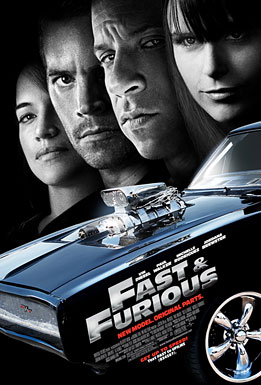
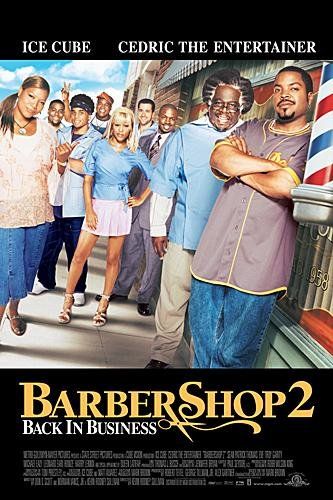


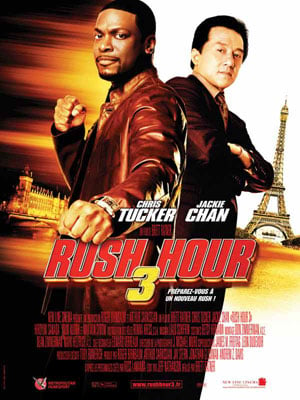
If at first you do succeed, copy it again and again
When I was a child and physically had to wait for about three years after finding out the true identity of Darth Vader for the final chapter, I couldn't stop thinking about what would happen next for the entire three years.
I was sitting here the other day reading about upcoming films on IMDB. I was once again confronted with the slow proliferation of the sequel. No longer is there just one or two films all of America breathlessly awaits each summer to satisfy the collective anxious curiosity their predeccesors plunged us into. Rather, these days, there are so many sequels it is difficult to keep track of them all. Take for example the newest part four -- Fast and Furious (see pic below). Did anyone even see part three? And what is this with just using the exact name as the first film? Could anything be more confusing? Also, Vin Diesel just comes and goes as he pleases and the "plot," if we can call it that, just rolls right along.
Let me stop before I go too far. I'm not here to criticize Hollywood for the obviousness of their attempts to capitalize on dwindling ticket returns. Recession hits everyone, and obviously recession means sequels for Hollywood. Look at it as a business model: it is a safe move to invest in a familiar, proven successful franchise when you are talking 300 million dollar price tags. So it makes cents (bad pun). But I'm left, as I normally am, with a few nagging questions about a more subconscious aspect of what is happening to Hollywood, and therefore, to ourselves.
Ok, now back to the "Fast and Furious." We all know why we went to see "Return of the Jedi" or "Godfather: Part II." These were films we genuinely cared about. They told the stories of characters we cared about. But why are people going to see "Fast and Furious" (because believe me, they are)? I think somewhere along the way our expectations were lowered. The sequel, instead of being, as one might hope original films are, an expression of a unique artistic vision (I have a different HUB about Art in a capitalistic society forthcoming), became more and more, like bloating ticket prices, a means to monitarily capitalize upon an obviously risky industry desperate to make huge profit margins despite losses on not-so-commercially successful ventures, like say, anything Nicolas Cage has been in for the last fifteen years. So truly Hollywood is dealing with dwindling returns on one hand, and their shortsighted business practices on the other.
Anyone who has seen HBO's Entourage, a Mark Wahlberg produced comedy that centers around the lives of a young movie star caught in the middle of the political shortsightedness and down right sillyness that is the business of making movies, knows that Hollywood can be its own worst enemy when it comes to running a successful industry. But, unfortunately for Hollywood, every action has an equal and opposite reaction. The point of this HUB is not to point out all the issues that have lead to this slow decline in the state of Hollywood sequels, but rather to show what that means to us in terms of who we are as people in our unique time and place in history. There is no way to simply churn out cookie-cutter easy sequels and fix the financial issues Hollywood faces; infinitely raising prices wouldn't help either for that matter.
So the important question, at least for this HUB, becomes what are the ramifications upon us, the public, that result as an equal and opposite reaction to these changes in film? First, it means that our expectations have been lowered. This is not insignificant because lowering the public's expectations is far easier to do than raising them, especially given Hollywood's shortsighted business practices. The stagnation of the creative process gives way to boredom that familiar characters, huge effects, and big name stars can only stave off for a while. Ultimately when we expect less, we are acknowledging that things are not as they once were. As obvious as this sounds, it is a very harsh business reality for an industry that is non-vital when people do not have the money they used to have. Those in charge in Hollywood should count the cost before we, as a public, become completely fascinated with something else.
Secondly, it means that gone are the days where we got a good film and kept it that. Anymore a good film turns into a mediocre sequel, and surprisingly, many of those mediocre sequels find themselves followed up by amazingly underachieving trilogies. Perhaps the most obvious example of this is "The Matrix," whose sequels turned the best Hollywood film in years into the biggest disaster since the Hindenberg. Imagine how horrible it would be if films like "Shawshank Redemption" or "The Princess Bride" came out now and instead of the fond memories we treasure, we are left with a dissatisfied experience of wondering, "WHY???" Like the first point, this drives the wedge between the audience and Hollywood larger. This is not a wedge of anything other than business opportunity, which leads to point three.
This is the most significant reaction in my opinion, Hollywood's leaving its throne vulnerable and open. Cracks in the armor mean the giant can fall. We, as a nation, as a world, grow further and further from our fond memories of Luke Skywalker and Michael Corleone and instead are confronted with special effects. Hollywood is dragging up everything "familiar" they can (think "Transformers" or the forth-coming "G.I. Joe") -- the most telling part of Hollywood's attempt to survive the recession and other struggles. And their appeal to familiarity does nothing more than unite the audience on the lowest common demoninator. I at times find this appeal to the most base and therefore most widely marketable aspects of film to be insulting, but more often it makes me sad. We spend our time thinking about the dollar instead of the art, the moment, or the people. I want to see us learn from our mistakes. I want to see us strive to create new, better, more exciting ways to share our stories, culture, and imagination with each other. I want to see the decline of movie theaters, if such a thing does come to pass, give way to something better, more exciting, and with a fresh way or medium for us to experience what can and should be the best stories by the best minds of our generation.
If I had to answer what is next, I would point to the video game industry. Why? They have their feet both in Hollywood and Silicon Valley. Once you have played games like Playstation's "God of War" or X Box's "Gears of War" it becomes evident just how many of the best minds in special effects, plot, drama, artistic vision have already slipped away from Hollywood. Video games offer an experience that film is incapable of: one in which the audience has some manner of control. This is another reason why I think video games could be bigger than Hollywood -- film, as much as it is social in a way video games have not yet been, still cannot compete with many aspects of the video game experience. More forthcoming on this topic.
But still, I have been a movie junkie my whole life, so until George Clooney is EA's spokesperson, I will continue to go to the theater and shell out my $11.00 for a ticket. And as some films have broken this rule as of late ("The Dark Knight" comes instantly to mind) Hollywood is still on the throne. Until then, as long as you can stomach four sequels to Ice Cube's barbershop movies, Long Live the King, right?





